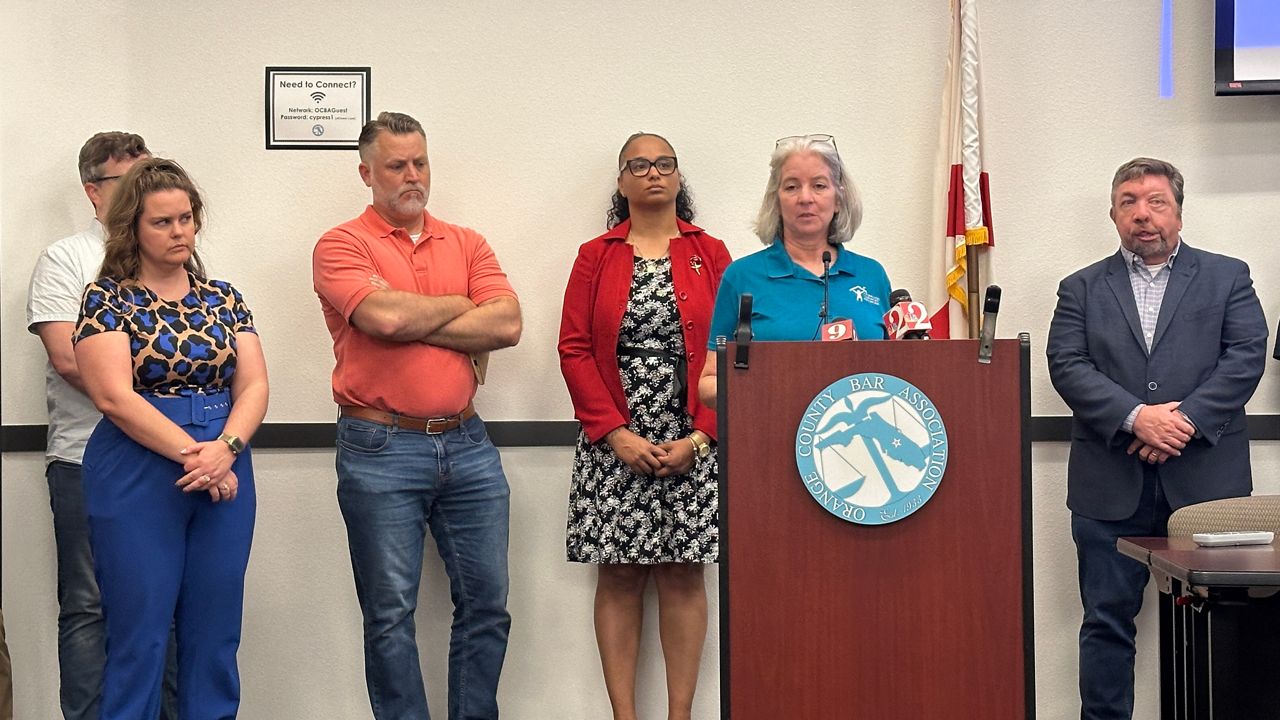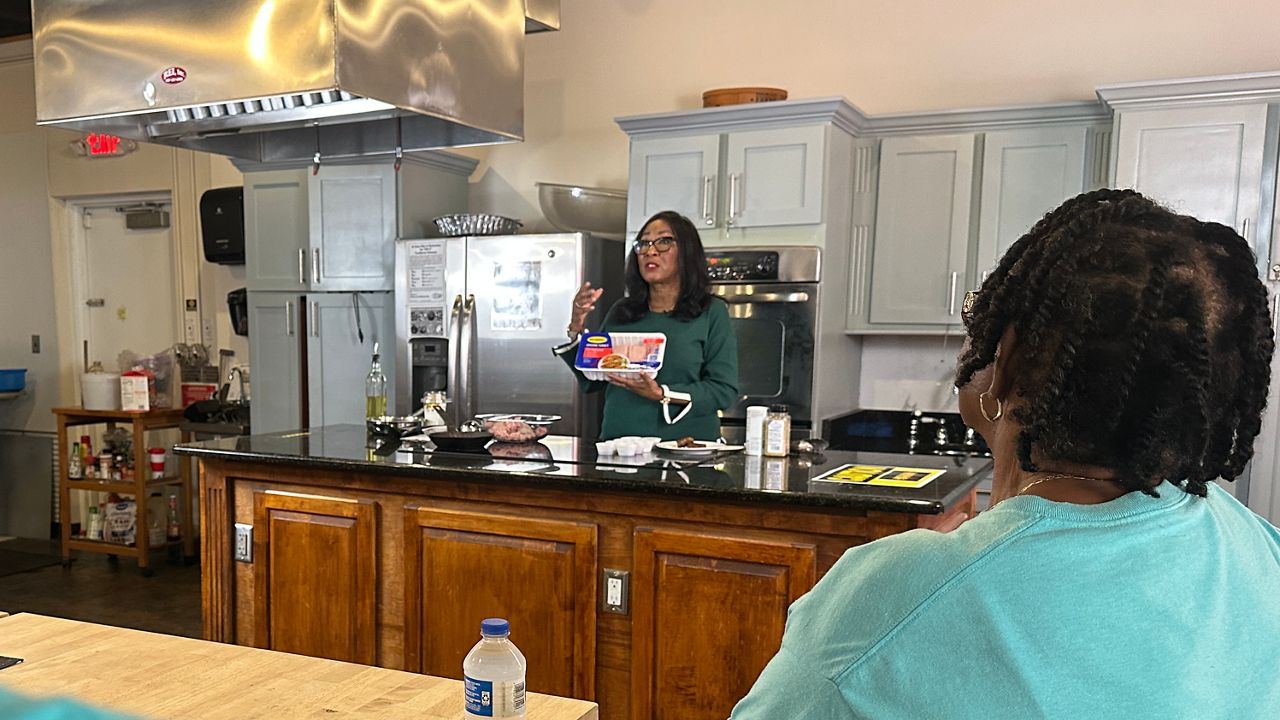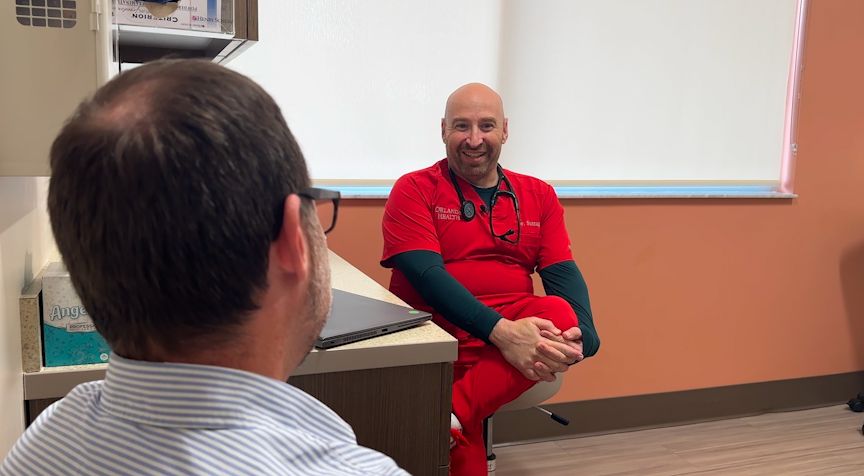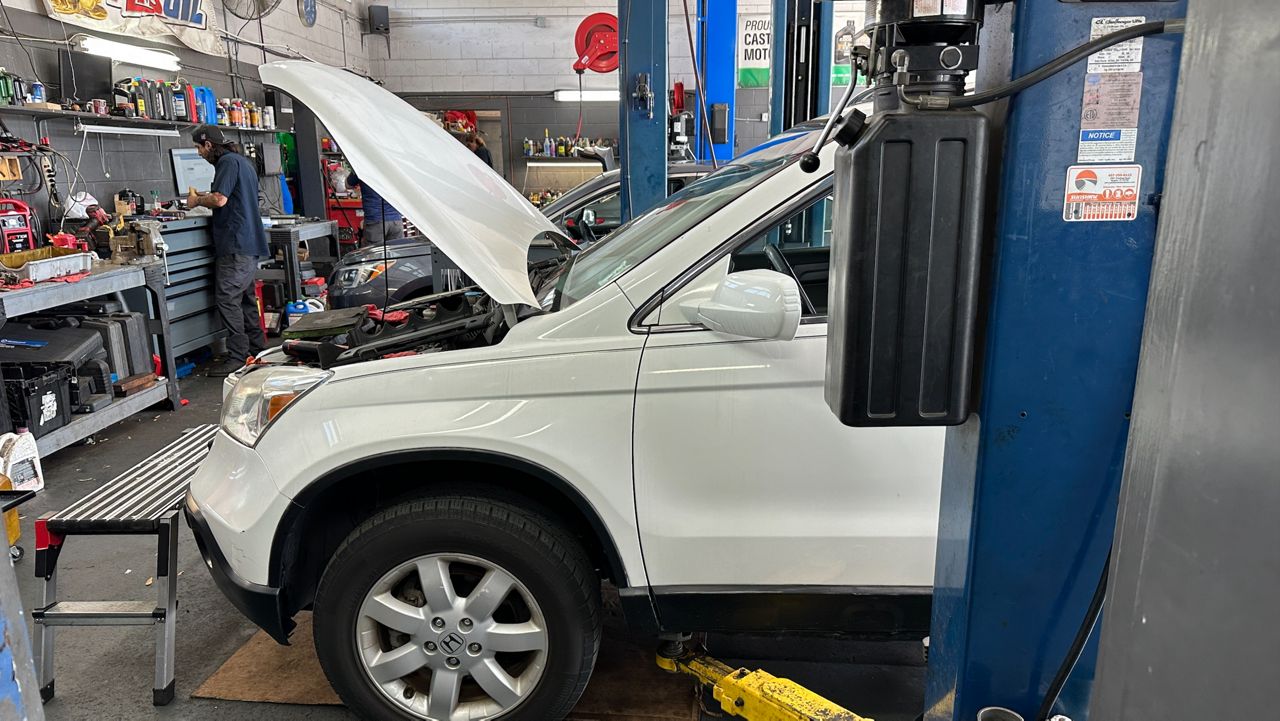ORLANDO, Fla. — After months of planning and design, some Orange County students are testing new technology in an effort to reduce anxiety, depression and stress levels.
AdventHealth distributed nearly $1 million to four Central Florida nonprofits in April to address mental and behavioral health challenges.
One of the four nonprofits, Man Up Mentoring, is using its $100,000 grant for the organization's Man Up Grace Project.
According to a Florida Youth Substance Abuse Survey, about 42% of Orange County students reported feeling depressed or sad most days in 2022, compared to 47% of students statewide.
Man Up’s new mental health pilot program is using virtual reality to help make a difference.
“I am more than a conqueror. I am more than a conqueror,” said 16-year-old Jones High School student Jeremiah Fudge as he repeated empowering messages aloud.
Fudge was using a virtual reality headset to visually travel from a quiet room to a beach oasis.
“And this can help me by calming me down," he said. "It gets me to a point where I’m able to process everything and move on."
Morriah Powell, 15, who also attends Jones High, immersed herself in a modern penthouse using her virtual reality gear.
“Being in that space made me feel like I reached my goal,” she said. “It’s just words of confidence to me. I just feel like it pushes me. It makes me want to do things.”
Samantha Wallace, co-founder of Man Up Mentoring, said the nonprofit works with kids of lower income — many of whom are from Title 1 Orange County Public Schools like Jones High School.
“They can see themselves uplifted, encouraged, motivated to take on some of the day-to-day challenges that they face,” Wallace said. “And learn how to relax, calm down and see themselves in their future."
Beyond the new technology, Fudge and Powell said Man Up Mentoring has created a family they can trust and talk to.
“It influenced me to stay off the streets and smoking and doing all this other stuff, and keep all that negative energy away,” said Powell. “Yes, yes, I believe in myself. I feel like I can do it.”
Augmented reality company Brain Rain Solutions executed Man Up’s vision, research and feedback.
While the nonprofit purchased the VR headsets, the visual designs were created by twin Brain Rain founders Travis and Troy Nunnally.
As part of the pilot program, the company pairs virtual reality therapy with traditional therapy and counseling.
On average, Wallace said 96% of Man Up’s youth end up not offending or re-offending in the juvenile justice system.











